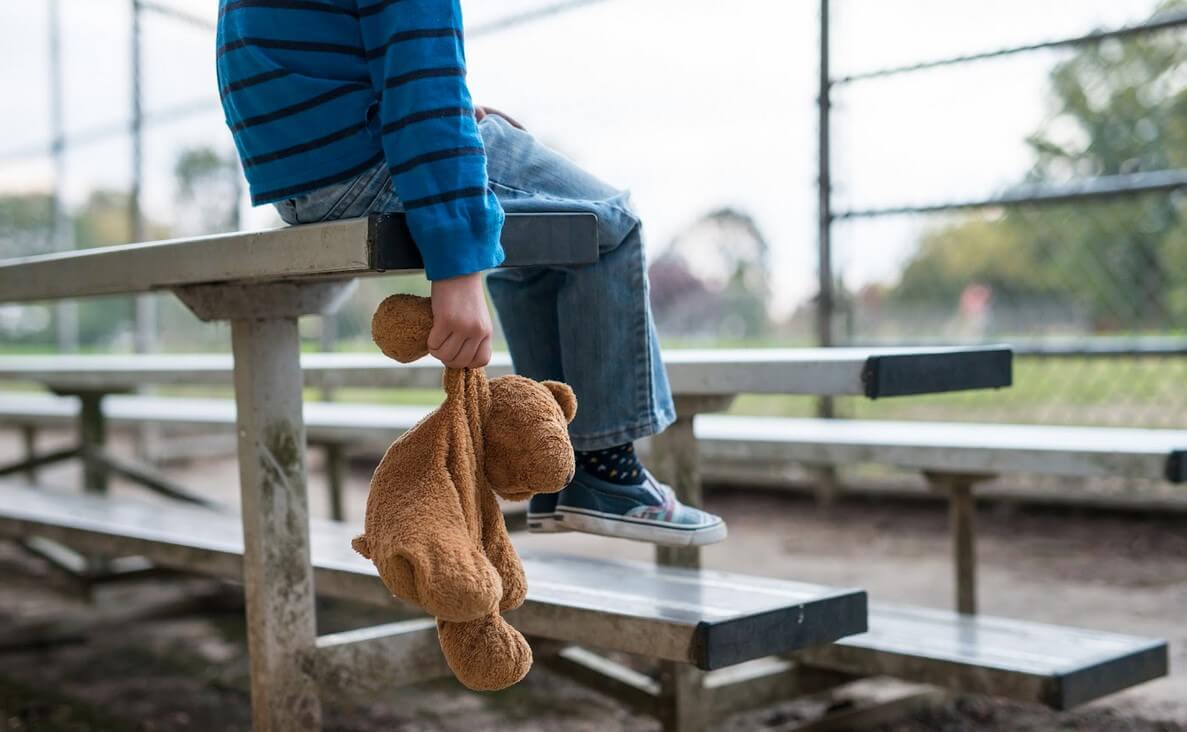In a world obsessed with instant gratification, the struggle with porn addiction has quietly crept into countless lives and relationships. It’s a topic often shrouded in stigma, but acknowledging this issue is the first step toward reclaiming love and intimacy. Recognizing the complexities of porn addiction can empower couples to tackle this challenge together.
Defining porn addiction involves understanding its signs and symptoms, as well as the profound effects it can have on relationships. This article will shed light on how addiction can erode connection and trust, urging couples to confront the realities of their situation. By doing so, they can begin to take proactive measures to heal and grow together. This article will address:
• Understanding Porn Addiction
• Practicing Open Communication
• Seeking Professional Help
• Engaging with a Support Community
• Making Lifestyle Changes
• Rebuilding Trust
• Getting the Right Resources
With empathy and determination, couples can rebuild not just their trust, but an enriched emotional bond that thrives beyond the shadows of addiction.
Understanding Porn Addiction
Overcoming pornography addiction is not only a journey toward personal recovery but also an essential step in restoring and strengthening your relationships. Porn addiction is a serious health condition that requires acknowledgment and a commitment to pursuing appropriate help for recovery. This journey involves not just quitting the habit but making significant lifestyle changes, engaging in counseling, and receiving unwavering support from both loved ones and support groups. Empathizing with those struggling can ease the pain on both sides, leading to a more positive path to healing.
Defining Porn Addiction
Pornography addiction is characterized by a compulsive need to consume pornography that profoundly affects mental, emotional, and relational well-being. It’s important to recognize the signs: increased tolerance and craving for more explicit content, failed attempts to cut back, and neglect of responsibilities due to excessive viewing. Those affected may exhibit withdrawal symptoms like anxiety or irritability if unable to access pornography, continuing usage despite negative impacts on relationships, work, or mental health. Recognizing these patterns is the first step in seeking professional help—counselors, therapists, or addiction specialists can guide you through your recovery journey.
Signs and Symptoms of Addiction
Identifying the signs of porn addiction is crucial for seeking appropriate support. Common withdrawal symptoms include aches, anxiety, a depressed mood, insomnia, and irritability. Alongside these, feelings of shame, guilt, and low self-esteem are pervasive, leading to a cycle of addictive behavior and hopelessness. This cycle can damage trust and intimacy in relationships, highlighting a deeper issue. If you or a loved one is experiencing these symptoms, know that help is available.
The Impact of Porn Addiction on Relationships
Pornography addiction can severely impact relationships, causing emotional disconnection and a lack of genuine intimacy. Partners may feel a void in closeness as excessive consumption of pornography sets unrealistic expectations, leading to dissatisfaction and even performance anxiety. This yearning for novelty can escalate to infidelity, eroding trust further. Time spent engaging in pornography can also lead to neglect, leaving partners feeling isolated. Each relationship may experience these consequences differently, but understanding and addressing the root issues can help repair our damaged relationships, restore love, and build a stronger foundation of trust.
Restoring your relationship begins with validating your partner’s feelings, filling their love account with understanding, and taking steps toward forgiveness—both of yourself and your partner. Together, you can work to replace false intimacy with genuine connection, paving the way to renewed trust and love. Remember, recovery is a journey, and each step brings you closer to a healthier, more fulfilling relationship.
Open Communication
Rebuilding a relationship after a pornography addiction can seem daunting, but the journey becomes much more manageable with
This is an essential step in restoring trust and fostering a healthier dynamic between partners. Dedication and patience from both parties are crucial as they navigate through the impact of this addiction. Through open and honest dialogue, couples can collaboratively address the pain and challenges they face, empowering both members to work towards healing. Establishing this habit creates a safer and more supportive environment for both to engage in joint healing activities.
Importance of Honest Discussions
Honest discussions serve as the bedrock for mending any relationship affected by pornography addiction. By engaging in transparent conversations, partners can express their feelings, concerns, and expectations. This openness fosters understanding and empathy, ensuring both parties feel heard and validated. An honest and non-judgmental exchange encourages the resolve to change, addressing the negative effects pornography use may have left behind. It’s important to remember that taking a step back during heated conversations can be beneficial. Returning with calmer perspectives enables constructive dialogue and aids in building trust. Facing fears about life without pornography through candid discussions is critical for the recovery process.
Creating a Safe Space for Sharing
Creating a safe space where partners can freely share their experiences and emotions is fundamental. Local support groups can offer nurturing, non-judgmental environments for individuals dealing with pornography addiction. Here, partners can find comfort and understanding through shared struggles. Engaging with therapists and counselors specializing in addiction counseling can further help individuals explore underlying issues in a secure setting. Joining group discussions and therapy sessions reinforces the fact that recovery is possible, providing hope and motivation. Sharing experiences within such supportive communities significantly bolsters self-esteem and emotional resilience for both partners involved.
Speaking About Triggers and Challenges
Understanding emotional triggers is a critical component in overcoming pornography addiction. By engaging in open discussions about triggers and challenges, partners can prevent potential relapses. Collaborating with a therapist to develop a well-structured relapse prevention plan can help identify and deconstruct these triggers effectively. Building self-worth and confidence through healthy activities can serve as effective coping strategies. Additionally, open communication with mental health professionals provides essential support in managing complex emotions and triggers. It’s important to recognize that partners of those dealing with addiction often feel self-blame. Support groups can offer a valuable outlet for sharing these frustrations and learning beneficial coping techniques.
Through consistent effort and dedication, both partners can find healing and strength in their renewed relationship. Remember, each step taken towards understanding and communication is a step towards long-lasting recovery and restored love.
Seeking Professional Help
Overcoming pornography addiction is a courageous journey, and seeking professional help can be an empowering first step. Engaging with counselors and coaches who specialize in addiction and relationship issues provides a foundation of support and understanding essential for recovery. The addict and their spouse need a non-judgmental and confidential environment where they can courageously face the addiction, and develop effective coping strategies.
Personalized counseling or coaching can address each individual’s unique needs, allowing for a tailored approach to recovery. For those requiring more intensive intervention, outpatient, and inpatient rehabilitation programs provide structured support to manage consumption and work toward healing. Additionally, supplementing counseling or coaching with online resources and confidential helplines ensures immediate support is always within reach.
Finding the Right Helping Professional
Selecting a professional who is experienced in addiction and relationship issues can be transformative. These professionals offer a safe space to explore emotions, behaviors, and patterns that have contributed to the addiction. The right coach or counselor will equip individuals with the tools needed to restore emotional intimacy and connection within their relationships, leading to a renewed sense of trust and love.
Couples workshops or retreats, such as the Love Recon programs, can serve as valuable aids to individual therapy, reinforcing a sense of togetherness and mutual commitment to growth. Dedication to the process can guide both partners towards rebuilding trust and effectively rehabilitating their relationship.
The Role of Couples Counseling
Couples counseling plays a crucial role in healing and restoring relationships affected by pornography addiction. A qualified relationship coach or counselor guides partners to effectively navigate feelings of trust, empathy, anger, and forgiveness. Through couples work, partners learn to communicate better and develop new approaches to intimacy, strengthening their bond as they work towards recovery.
Working through a process as a couple allows both individuals to express their feelings and validate each other’s experiences, filling their “love account” with understanding and affection. Commitment to this journey helps partners rebuild a loving, connected relationship, surpassing the negative impacts of pornography addiction and embracing a future filled with restored love and trust.
Attending Support Groups
Overcoming pornography addiction is a journey best taken with the right support. Attending support groups such as Sex Addicts Anonymous (SAA) or SMART Recovery provides a nurturing environment where individuals can share their experiences, receive encouragement, and gain insights into each other’s healing journeys. Engaging in these groups brings an invaluable sense of community and reduces the feelings of isolation that often accompany addiction. They serve as a safe haven for both those facing addiction and their partners, who can also benefit from shared experiences and the learning of practical coping strategies.
Benefits of Group Support
Group support delivers numerous benefits that are crucial in overcoming addiction and rebuilding relationships.
- Connection and Community: By connecting with others facing similar struggles, individuals can create a community that minimizes feelings of isolation, creating a network of understanding and empathy.
- Shared Experiences: Members can share their journeys, learning from the wisdom and setbacks of others, which reinforces the sense of being on a shared path of recovery.
- Accountability and Motivation: The mutual accountability within these groups enhances motivation. Knowing that others are relying on you helps maintain commitment to recovery goals.
- Emotional and Social Support: These groups provide the emotional fortification needed to prevent relapse, allowing individuals to lean on each other for strength and support.
- Spiritual Support: Many groups, such as Celebrate Recovery, focus on the individual and couple’s spiritual development and relationship with God.
Local and Online Support Networks
Finding the right support network can make all the difference in the journey to overcoming pornography addiction.
- Local Groups: Consider attending local meetings of groups such as SAA or SMART Recovery. Celebrate Recovery and Regeneration are two biblically based, discipleship-oriented programs offered in many communities. These groups give the opportunity to meet others face-to-face, benefit from personal interaction, and build community.
- Online Resources: There are myriad online forums and websites dedicated to pornography addiction that offer educational materials and coping strategies. These platforms allow individuals to connect discreetly from the comfort of their homes, providing a sense of community even at a distance.
- Complementary Therapy: Pairing support group participation with other coaching or counseling options can enrich the recovery process by providing additional guidance and encouragement.
How to Choose a Support Group
Selecting the right support group is integral to a successful recovery journey. Here are some criteria to consider:
- Comfort and Privacy: Determine whether a local or online setting best suits your level of comfort and need for privacy. Online groups can offer anonymity which may be preferable for some.
- Alignment with Needs: Choose a group that aligns with your specific faith, needs, values, and goals. Investigate the group’s focus to ensure it offers the understanding and support you require.
- Accessibility: Evaluate the group’s location or online access, ensuring you can attend regularly to benefit fully from its resources.
- Support for Partners: If your partner is also seeking support, find groups that offer guidance for partners affected by addiction. This can be essential for relationship rebuilding.
Remember, asking for help and joining a support network is a sign of strength, a courageous step towards reclaiming your life and restoring the trust and love in your relationship. Embrace the journey with hope, knowing that recovery is within reach.
Lifestyle Changes for Recovery
Overcoming pornography addiction and restoring your relationship is a challenging yet rewarding journey. It’s a path where dedication, patience, and a shared commitment to growth play crucial roles. Recovery requires both partners to embrace open communication and engage in healing activities that nourish the relationship. Local support groups offer a safe and non-judgmental space, making it clear that recovery is attainable and you are not alone. Additionally, therapeutic counseling with addiction specialists provides valuable insights and guidance. Resources like the Couples Healing podcast can also be invaluable, offering strategies to help couples rebuild trust and connection. By focusing on healthier coping mechanisms, you’re not only repairing your relationship but also fostering deep emotional resilience.
Building Healthy Coping Mechanisms
Developing healthy coping mechanisms is essential for anyone recovering from pornography addiction. Stress is a common trigger, so finding new outlets is vital in avoiding relapse. Regular self-care, such as maintaining good sleep patterns, eating well, and exercising, can dramatically reduce stress levels, supporting your recovery journey. Incorporating enjoyable activities into your daily life can also ease stress and reduce the urge to turn to pornography. Importantly, steering clear of substances like alcohol and drugs is crucial, as they may complicate the recovery process by introducing additional addiction issues. Building a supportive network, possibly through local support groups, not only elevates emotional well-being but also equips individuals with tools for developing new, positive coping strategies.
Setting Boundaries with Technology
Setting clear, mutually agreed-upon boundaries regarding technology use is pivotal for those recovering from pornography addiction. These boundaries might include guidelines on online activities, the amount of time spent alone, and how electronic devices are used. Such measures create a safe and respectful environment for both partners, enhancing emotional well-being while fostering trust. Establishing these boundaries is a key step in the healing process, as it builds a foundation for respect and security within the relationship. Effective communication about these boundaries ensures both partners feel comfortable, supported, and understood in their recovery journey.
Engaging in Shared Activities
Engaging in shared activities is an excellent way to reinforce the healing journey for couples overcoming the challenges of pornography addiction. Consider the following:
Taking up shared hobbies: fosters a sense of togetherness and deepens emotional intimacy.
Participating in couples workshops or retreats: can significantly boost your emotional connection, helping you navigate recovery more smoothly.
Attending support groups: focusing on intimacy and trust-building provides invaluable resources and companionship.
Saying or doing something thoughtful for your partner every day: keeping your Love Account full.
Having a regular date night: reigniting the spark and the romance.
Praying with and for each other: drawing on spiritual resources for healing and restoration.
Developing an action plan that includes alternative activities encourages breaking old patterns and promoting self-worth and confidence. Investing time in healthy pursuits, such as exercise or cultivating new friendships, supports both partners in rebuilding their relationship dynamics, paving the way for a stronger, more loving connection.
Rebuilding Trust
Overcoming a pornography addiction is a courageous step, not just for the individual but for their relationship as a whole. It requires dedication, patience, and hard work from both partners. Rebuilding trust is fundamental in this journey, and it’s about working together to restore love, connection, and honesty. Validating your partner’s feelings and committing to filling their love account consistently can help repair a damaged relationship. By dedicating time, energy, and resources, couples can find new pathways to healing and stronger bonds than ever before.
Steps to Establish Trust Again
To truly rebuild trust in your relationship, there are vital steps both partners must take:
- Open Communication: Create an emotional safe space where both partners can express their feelings without the fear of judgment. This means discussing concerns and expectations transparently.
- Honest Discussions: Talking openly about the past experiences related to pornography is crucial. Honest discussions foster empathy and understanding, helping to bridge emotional gaps.
- Set Boundaries: Establishing clear, mutually agreed-upon boundaries can offer a sense of security and respect. This might involve guidelines around online activities and personal time.
- Shared Dedication: Both partners need to be equally committed to navigating the challenges that come with overcoming pornography addiction. This journey demands effort and resilience from both sides to rebuild intimacy and trust.
The Role of Transparency
Transparency is the backbone of rebuilding trust. It is about being clear and open about struggles, intentions, and feelings:
- Emotional Disconnection: Addressing the emotional disconnection caused by pornography addiction openly can help both partners understand its impact on their intimacy.
- Therapy Involvement: Engaging with therapists or support groups as a couple encourages transparency. These resources can guide couples through the challenges of addiction, fostering a better understanding of each other.
- Dealing with Resentment: Transparency helps mitigate the feelings of loneliness and resentment, as both partners can acknowledge their struggles honestly and work towards healing.
- Acknowledging Impact: Open, transparent discussions on the impacts of the addiction set a foundation for true empathy and healing. This acknowledgment is essential for restoring intimacy in the relationship.
Practicing Forgiveness
Forgiveness is not just a gift to your partner but a path to peace for yourself. It’s an essential part of rebuilding the fabric of your relationship.
In his book The Purpose Driven Life, Rick Warren says: “Many people are reluctant to show mercy because they don’t understand the difference between trust and forgiveness. Forgiveness is letting go of the past. Trust has to do with future behavior. Forgiveness must be immediate, whether or not a person asks for it. Trust must be rebuilt over time. Trust requires a track record. If someone hurts you repeatedly, you are commanded by God to forgive them instantly, but you are not expected to trust them immediately, and you are not expected to continue allowing them to hurt you.”Rick Warren, The Purpose Driven Life. Grand Rapids: Zondervan, 2002
- Guided Practice: Seeking help from coaches or counselors can be vital in the forgiveness process. They offer tools and guidance to navigate feelings of betrayal and anger. A primary emphasis in all The actual practice of forgiveness is a primary emphasis in all of the Love Recon programs and services the Love Recon programs and services is the actual practice of forgiveness.
- Healing Openly: Engaging in open communication is critical for forgiveness. It allows each partner to voice their hurts and work collectively toward a resolution.
- Shared Activities: Participating in activities that promote healing, such as couples’ retreats or shared hobbies, can foster forgiveness and strengthen the bond.
- Commitment to Growth: Building a loving relationship post-addiction requires patience and a strong commitment to mutual growth and healing.
By fostering a relationship built on trust, transparency, and forgiveness, couples can move forward together, opening doors to deeper connections and a shared commitment to a brighter future. Each step taken in love, understanding, and patience reinforces the journey to overcome the challenges that pornography addiction may have introduced.
Books and Resources
Overcoming pornography addiction is a journey that not only requires personal commitment but also access to the right resources. Online resources and helplines serve as crucial tools, offering accessible support to those in need. Whether through websites, forums, or educational materials, these resources validate your struggles and guide your recovery path.
Recommended Reading for Individuals
For individuals embarking on the path to recovery, several books offer practical insights and strategies.
• “Breaking Free: Overcoming Porn Addiction” by Alberto K. Cobbs stands out as a pivotal resource. This book provides a comprehensive roadmap for recovery, tackling the physical, emotional, and spiritual dimensions of addiction. It’s an ideal guide for those struggling with addiction themselves as well as for loved ones offering support.
• “Unwanted” by Jay Stringer dives deep into the motivations behind self-destructive sexual choices, shedding light on the subconscious patterns that lead to pornography use. Based on research from over 3,800 individuals, this book helps readers understand and overcome unwanted sexual behaviors.
• “Every Man’s Battle” by Steve Arterburn presents actionable plans for maintaining sexual integrity, drawing strength from real-life experiences of men who have overcome sexual immorality.
“Samson and the Pirate Monks” by Nate Larkin fosters the importance of community and accountability, providing inspiration through honest storytelling and shared support.
Books for Couples
Couples facing the challenges of pornography addiction in their relationship can find solace in various well-researched books.
“The Renewed Mind” and “The Renewed Mind Workbook” are essential for those seeking to rebuild trust. They emphasize the connection between recovery and the enhancement of intimacy. The workbook offers individuals a self-study guide tailored towards overcoming addiction and enhancing intimacy.
“Breaking the Chains of Infidelity” provides a comprehensive healing approach from sex addiction, aiming to restore trust in marriage while addressing trauma associated with pornography use.
“The Trust Factor” explores overcoming betrayal and rebuilding a lasting love, assisting couples in navigating the effects of porn addiction on their relationship.
Online Resources and Hotlines
In the digital age, online resources and hotlines play an indispensable role in overcoming pornography addiction. These platforms provide immediate and continual access to help, ensuring you can seek support whenever you need it.
Various websites and forums, such as Fight the New Drug, offer rich information and self-help strategies, along with testimonials from those who have successfully overcome their addiction. Helplines staffed by trained professionals assure confidential support and guidance, all reinforcing the essential truth: recovery is entirely possible, and you are not alone in this journey. Utilizing these community resources empowers individuals and families to navigate the complexities of pornography addiction effectively. By reaching out through these readily available resources, you’re taking a significant step towards healing, restoration, and reclaiming love and trust in your relationships.
Love Recon Coaching
1-866-441-7171






